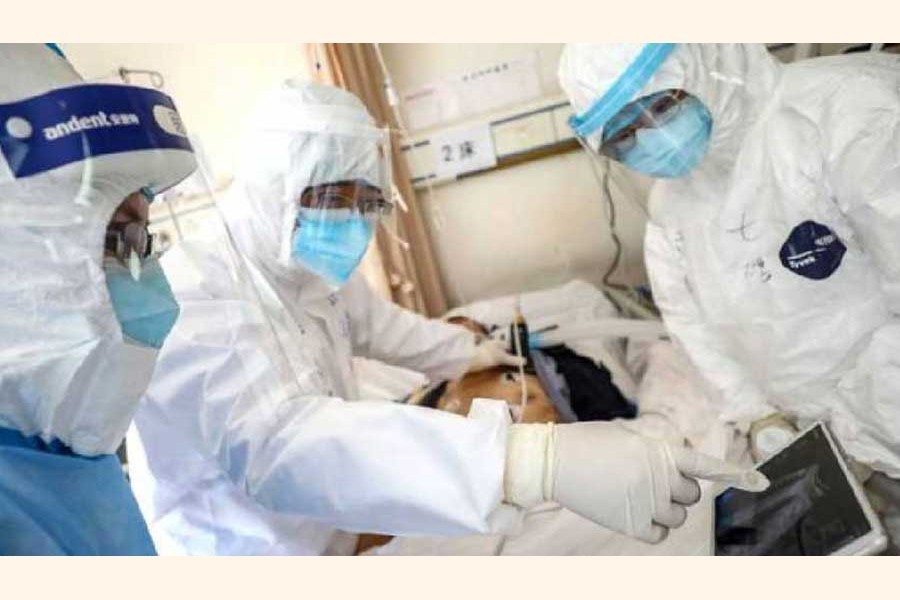The management of the country's health system has never been perfect. It has lots of weaknesses and there has been no serious effort from any quarter to amend those.
So, when a health emergency of an immense proportion like that of Covid-19 pandemic gripped the country, the health system management, apparently, lost its way. While attending to a crisis, it has been failing to meet the healthcare needs of millions of patients suffering from non-Covid ailments. Moreover, the efficiency level of the people manning the system in handling the coronavirus issues has also come under scrutiny.
There are a number of instances where hospitals, both private and public, refused to admit non-Covid patients. Some of the patients died without receiving any treatment.
The death of an additional secretary to the government, who was suffering from kidney diseases, last Saturday under very painful circumstances is a pointer to that fact. The daughter of the high government official herself being a doctor could not get him admitted to a number of leading hospitals. Finally, he got a place in the Kurmitola General Hospital, but died there without any ICU support though he needed it most.
The bureaucrat is not alone. Many Covid and non-Covid patients, allegedly, had gone through similar situations before meeting their life's end.
Hospitals that have listed for handling Covid-patients only are refusing patients with corona-infection symptoms if the latter fail to produce corona-positive reports. But such reports are hard to come by. It takes a number of days for the corona suspects to get themselves tested and procure reports. The countries that have been successful in containing the Covid-19 are doing extensive tests on their citizens. Bangladesh is yet to complete even 100,000 tests over a period of more than two months. A number of countries each having population even less than half of Bangladesh have been doing an identical number of tests daily.
The people afflicted with diseases other than Covod-19 also have been facing similar problems. Hospitals want them to produce certificates to the effect that they are free from coronavirus infection. Is it possible to procure the same under the prevailing circumstances?
So, people have stopped visiting hospitals unless there is an emergency. They have been doing so to avoid infection and also harassment.
Since the start of the pandemic, people across the world have been watching on electronic media how health workers in a number of countries, including neighbouring India, under difficult circumstances, have been attending to Covid-19 patients. Many doctors and health workers got infections and died, but that could not deter other health workers from attending patients.
There are, of course, many doctors, nurses and health workers, in the country who are equally true to their duties and responsibilities. However, the overall situation prevailing in the health sector has overshadowed their selfless services.
The directorate general of health services (DGHS) has distributed hundreds of thousands of personal protective equipment (PPE) to health workers. It is also a responsibility of the management of private hospitals to provide PPE for their doctors and other health workers. So, with suitable PPEs in place, health workers should have no reasons to shy away from the task of offering treatment to patients --- Covid or non-Covid. Surely, there are some risks, but that is worth taking during this period of time when the country is facing an unprecedented health emergency.
To be honest, people did never hold the country's health system in high esteem. They have now least confidence in the system.
It is almost certain that coronavirus will continue to stalk humans for some more time as the development of a suitable vaccine is unlikely before next 12 to 18 months.
The health sector policymakers most of the time have been talking about all sorts of preparations being taken to tackle the Covid-19 pandemic. However, the lack of coordination among various government agencies and the absence of a sense of direction are very evident on the ground.
The recent relaxation of restrictions is a case in point. When most people, including the owners of shops and shopping malls, are not in favour of reopening their establishments, the government has allowed 'limited' restart of business. Now the owners have decided not to reopen their shops before Eid.
Predictions are that severity of Covid-19 will subside in the latter part of July. But the disease will not go away. So, the government will have to make adequate preparation for a longer period so that Covid and non-Covid patients are not deprived of necessary care in both government and private health facilities.
The public health facilities including the large ones are generally visited by lower middleclass and poor people. There are allegations galore that doctors and other medical attendants there are not very sympathetic towards their patients. However, one does need to keep in mind the load of patients the doctors and nurses are required to handle in these health facilities.
Unfortunately, the private health facilities that usually treat a substantial number of patients both in their indoor and outdoor sections have failed to rise to the occasion. The large private hospitals in particular that have been doing brisk business over the years have consciously kept themselves away from the ongoing health emergency. Even those have been found reluctant to serve the non-Covid patients, including the ones registered with them.
It is high time the government took a pragmatic and realistic approach towards health management so that all patients, Covid and non-Covid, can get treatment without any hassle. What matter most here are quality governance and decisive actions. The government enjoys all the powers to ensure this. Hopefully, it will exercise those.


